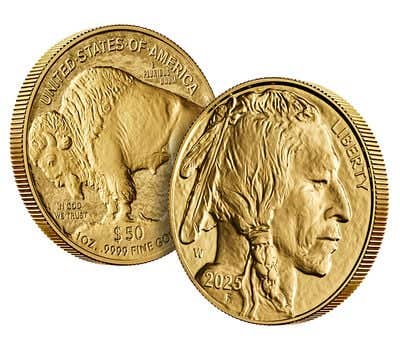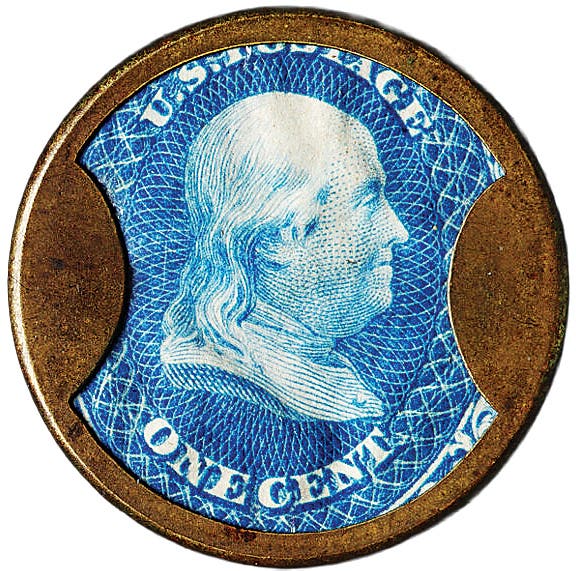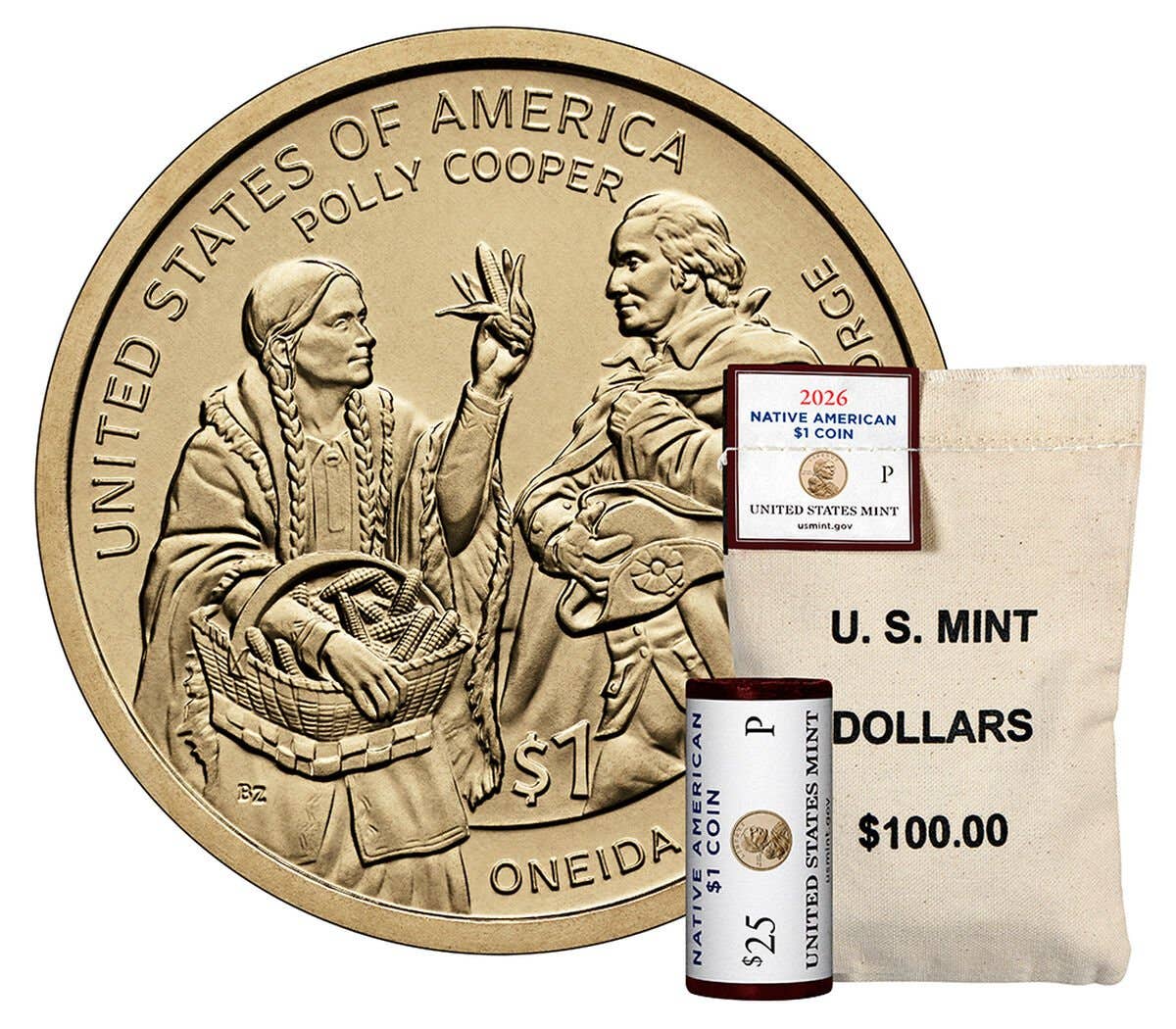Got Gold? Coins? What About a Job?
Today I will discuss the dire societal and economic consequences of seriously considering returning to a commodity-backed (gold-backed) currency scheme.
This article was originally printed in the latest issue of Numismatic News.
>> Subscribe today!
For those subscribers to Numismatic News who read Viewpoint regularly, this is my third submission for the year.
In April, I discussed why gold and silver are no longer money in the modern sense, and we should not lie to ourselves that they are. In July, I offered that a uniform worldwide currency exchange market made commodity-backed currencies superfluous, because convertibility (a key need of currencies) was taken into that market-based mechanism and away from metal content or representation.
This time, I will discuss the dire societal and economic consequences of seriously considering returning to a commodity-backed (gold-backed) currency scheme. Yes, I understand the benefits to some people of holding large amounts of bullion, beyond numismatic interests. I even understand the philosophical underpinnings of the desire for a gold-backed currency. I understand its historical tradition and its emotional appeal. I don’t need to read any 200-year-old, or even 2,000 year old historical references as counter-arguments. That was then, this is now.
The gold bugs have written here about a gold-backed currency’s virtue of preventing inflation, the “cruelest tax.” You know what? They’re mostly right. Two problems remain, one technical and one substantive.
First, if any currency, even the dollar, is tied to the value of any commodity, even gold, then by definition that commodity can never change in value or price. It’s an insane notion to artificially say by policy that gold has value X in dollars and it cannot change. It’s nonsense. Every commodity must be allowed to have a floating value.
How does it make sense to ever tie any economy’s money supply or value, for example the U.S. money supply, to worldwide supply and demand dynamics for gold? Why should a spike in demand for gold by brides in India raise the value of the U.S. dollar? Do not all commodities have an intrinsic right to variability in their price due to supply and demand changes?
That’s a free market, not clinging to 2,000-year-old traditions on notions of money. Stable constant money supplies made sense when population levels were stable and economies were largely static. Constantly growing and changing economic activity requires a constantly growing and changing money supply or transactions bog down.
Second, while a gold-backed currency might prevent inflation well, moderate inflation is an intentional worldwide policy choice for almost all major central banks and currency-issuing authorities. Inflation is intentional, not accidental or incidental. And they’re not doing it to devalue your money market account balance, either. Money supplies are regulated not to preserve the value of anyone’s monetary holdings (or store of value), but to serve as a lubricant for economic activity and investment. Money supply regulation is not about wealth maintenance for those holding wealth; it’s about encouraging economic activity and employment.
It’s possible to find a Ph.D.-holding economist to write in support of nearly anything, no matter how bizarre. But there still is such a thing as mainstream economic thought versus fringe-tinged economic thought, and the field of numismatics is loaded with fringe thinkers way out where the bell curve of professional economic thought gets really skinny. It is their unique view of the nature of money that perhaps even creates many numismatists.
Gold bugs are just not in touch with mainstream political economic theory. Simply put, they’re a breed apart. They operate in an alternate frame of reference. Sometimes the most profound self-awareness is to be aware of, and be OK with, one’s own weirdness. Ron Paul has been on the losing side of more 434-1 votes than anyone in congressional history. I doubt he minds having that distinction. It’s a brave man who can think, “everyone else is wrong but me.”
So why is inflation a matter of nearly uniform policy? Simply, because deflation, the expectation that general price levels will fall over time, cannot be tolerated by any modern economy. Deflation causes an economic death spiral. This is because we have no known tools to deal with a deflationary spiral. So the best way to prevent deflation is to cause inflation intentionally. A stringent gold standard leaves us unable to do that. All it does is allow the wealthy to maintain their wealth. That may be good enough for you as an individual, but there are more people involved than just you.
Deflation incentivizes people with financial resources to keep them on the sidelines and not invest in economic activity. It you’d like to see soup lines and uncontrollable riots return very quickly, keep insisting that policy makers attempt to abolish inflation. If prices are steady or downward trending generally, and interest rates are positive, so that you get your “store of value” and it actually increases over time while doing nothing to put that wealth to productive use, you’ve lost whatever small incentive that still exists to innovate and invest and take risk and create jobs. You think the economy’s bad now? Just wait and see.
Ultimately, real economic security lies not in hoarding a yellow metal, but in promoting an economic system where your neighbor’s labor can still feed his family and put a roof over their heads. Because if your neighbor can’t feed and shelter himself, your economic disaster plan had better include more than gold and silver, like high fences, mean dogs, and big weapons. All the gold holdings in the world won’t buy you the ability to sleep with your eyes open.
Accumulating gold because you truly believe an economic calamity is coming is a prudent choice. But when we morph into actually promoting the idea of such a collapse, we are wandering into very scary and irresponsible territory. Economics is a field awash in self-fulfilling prophesies.
To me, gold bugs, or “store of value” ideologues, are motivated by an “I’ve got mine, you’re on your own” mind set that is societally dangerous. Worse yet, by advocating a gold standard to policy makers, if they carry the day they may be unwittingly sowing the seeds of the very economic calamity from which they seek to insulate themselves.
Advocate for an economy where nearly everyone can have a viable income level and you can save yourself a lot of heartache and spending on gold and guns. Of course, if you’re motivated by the art, science and history surrounding coinage, rather than a single-minded pursuit of “hard money” for the supposedly coming economic apocalypse, you are largely blameless.
I’m quite alright with being an outlier among numismatists on the gold standard or even silver standard issue. Heck, I even believe there are nice U.S. coins to collect minted since 1965. That’s how weird I am. There isn’t a gap in the Washington Quarter set between 1964 and the 1992-S silver, you know. Have you checked the prices on MS-65 pieces from 1982 and 1983? Huh. All that, and no bullion value? Go figure.
This Viewpoint was written by V. Kurt Bellman, hobbyist from Harrisburg, Pa.
More Coin Collecting Resources:
• Subscribe to our Coin Price Guide, buy Coin Books & Coin Folders and join the NumisMaster VIP Program









